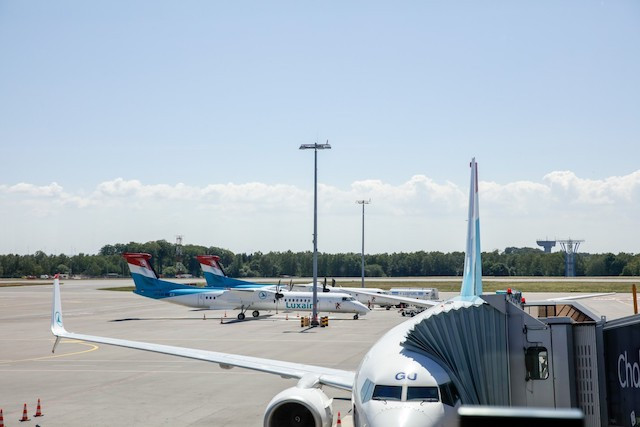Australian airline Qantas made headlines a few days ago when it announced on Channel Nine television that it planned to make the covid-19 vaccine mandatory for its passengers. This would be the case as soon as it is available to everyone, which may take some time given the logistical challenges.
So far, some laboratories such as Pfizer, Moderna, or AstraZeneca, have revealed encouraging results from their clinical trials. In any case, Qantas believes that other companies could follow its lead.
As far as Luxair is concerned, no such decision has been made at this time. The Luxembourg company did not wish to comment on the matter, but said that “for us, the current concept allows us to travel by plane in an adapted way. The plane is one of the safest places in this context.” It is therefore unlikely that it will force its passengers to be vaccinated. The same goes for its employees, since, as lawyers specialised in labour law explained in a previous article, this would constitute a violation of the right to physical integrity.
Other companies have taken a position on the subject, such as easyJet, interviewed by the Financial Times, which is not planning on making vaccination mandatory.
The hypothesis of the travel pass
Is an airline allowed to include such a rule in its general conditions? “I think it's legal,” says Jean-Loup Stradella, a lawyer at the European Consumer Centre in Luxembourg (ECC). “An airline company can ask for different travel documents: passport, visa... I can imagine that a vaccine fits into this kind of thing. Legally, no law prohibits this,” he says. “Some long-distance cargo companies already require, for example, the yellow fever vaccine.” For him, this cannot be considered discriminatory, and a plane ticket is a private contract.
The same goes for companies that require a negative covid test. Luxair, for its part, simply asks passengeres to fill out a health status form, certifying, for example, that they have no symptoms of covid-19.
For its part, the International Air Transport Association (IATA) recommends a travel pass, where it would be possible to centralise the health information needed to travel.
The airline alliances Oneworld, SkyTeam and Star Alliance also call, in a joint statement, for a centralised approach with “the adoption of digital health passport technology”. All three have 58 global airlines among their members, including Air France, Lufthansa and British Airways, for example.
The decision to make the vaccine mandatory for entry could also come from the countries themselves. “It has to be proportionate to the purpose. It’s a question of balancing two freedoms: the protection of privacy and the obligation to protect public health,” says lawyer Guy Castegnaro.
Each country has different regulations, although within the European Union, this could be considered a “brake on freedom of movement”. This did not prevent border closures in March. In any case, Luxembourg is not planning to make the vaccine compulsory for its inhabitants.
This article was originally published in French on Paperjam.lu
